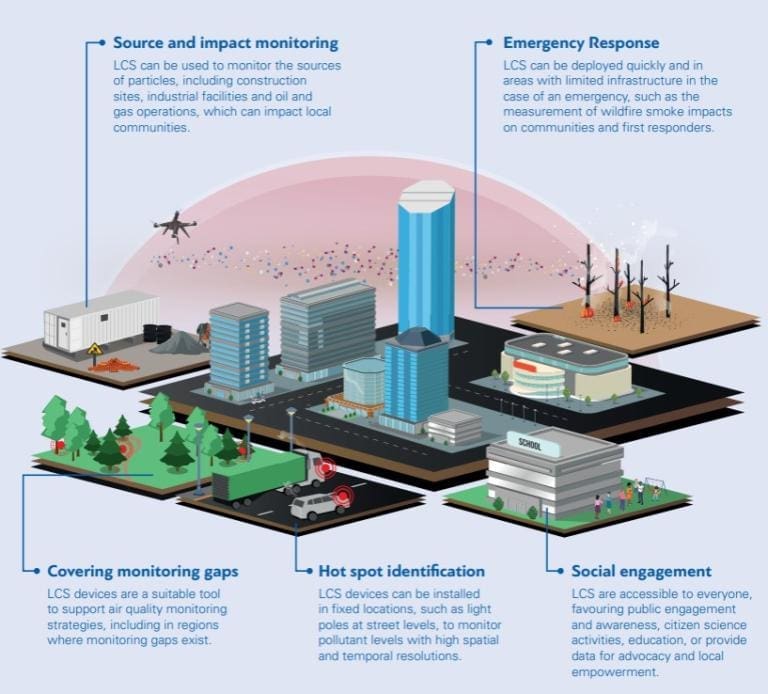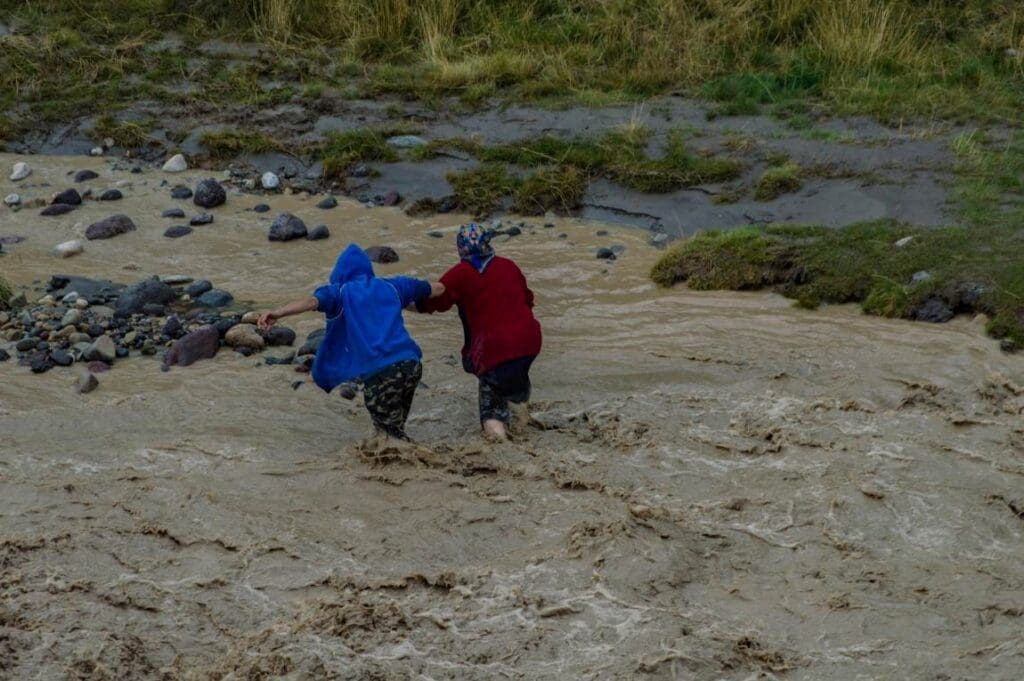In a bid to address the growing concerns over air pollution’s impact on health and the environment, the World Meteorological Organization (WMO) has unveiled a compelling report that underscores the transformative potential of low-cost sensor systems (LCS) in enhancing air quality monitoring and informing policy-making worldwide.
Key insights from the WMO report
Released to coincide with the WMO Executive Council meeting, the report titled “Integrating Low-Cost Sensor Systems and Networks to Enhance Air Quality Applications“ was produced by WMO’s Global Atmosphere Watch network in collaboration with the UN Environment Programme (UNEP), International Global Atmospheric Chemistry project (IGAC) and international experts on technical and application areas, highlights several key messages:
- Bridging Gaps in Monitoring: LCS can significantly augment existing air quality monitoring networks, especially in regions where traditional, high-cost monitoring infrastructure is sparse or non-existent.
- Benefits for Developing Nations: Low- and middle-income countries stand to gain immensely from LCS deployments, which can provide crucial air quality data in underserved areas.
- Community-Level Engagement: LCS systems are invaluable tools at the grassroots level, enabling communities to monitor their local air quality and advocate for healthier environments.
- Data-Driven Policies: Leveraging data from LCS can drive effective policy actions to combat air pollution and protect public health.
The critical role of LCS in global health
According to the World Health Organization (WHO), air pollution contributes to an estimated 7 million deaths annually, with links to a plethora of health issues such as respiratory, cardiovascular, and pulmonary diseases, cancer, and cognitive impairments. The widespread implementation of LCS could be a pivotal step towards reducing these numbers by providing timely and localized air quality data to inform both individuals and policymakers.

“Air quality forecasting involving low-cost sensors is an increasingly important field due to its potential to support widespread monitoring and early warning systems,” said Sara Basart, WMO Scientific Officer and co-author of the report. “Air quality forecasting is important to support effective decision-making to manage air quality impacts, especially in terms of human health. They are an important additional tool which can be harnessed at the community level to make a real difference in people’s lives.”
Global examples of LCS implementation
The report showcases several successful deployments of LCS around the world, highlighting their versatility and impact:
- London, United Kingdom: The Breathe London initiative started with over 100 LCS to monitor nitrogen dioxide and has now expanded to over 420 sensors tracking PM2.5 and nitrogen dioxide, offering detailed insights into air quality across the city.
- Lagos, Nigeria: An LCS network, supported by the World Bank and Lagos State Environmental Protection Agency, provides critical data on air quality from six strategic sites. This data has been instrumental in initial health and economic impact assessments and is guiding plans for network expansion.
- Uganda: The AirQo network, designed to withstand the challenges of resource-limited environments, serves as a model for other regions in Sub-Saharan Africa facing similar constraints. This initiative also fosters local technical expertise and capacity building.
- Mexico: The VER-PM2.5 network, currently comprising 50 sites and set to grow to 150, offers valuable data on spatial variations in PM2.5 levels and helps monitor pollutant exchanges between urban centers and surrounding areas.
Engaging communities through education and advocacy
Community engagement is a cornerstone of effective air quality management. The report details numerous programs that integrate LCS with educational and advocacy efforts:
- Love My Air: In Denver, USA, this program equips schools with LCS and educational materials, empowering students and staff to make informed decisions about outdoor activities based on real-time air quality data.
- EducAIR: This initiative in Manaus, Brazil, educates students and their families about air quality and forest conservation, fostering a deeper understanding of environmental health.
- Cityzens4CleanAir: Urban runners in this program use wearable LCS to collect air quality data, which is then used for advocacy and raising public awareness about pollution levels.
- sensors.AFRICA: Part of the Code for Africa network, this project distributes DIY kits for building LCS and trains individuals in data collection and analysis, enhancing grassroots involvement in air quality monitoring.
- Clean Air Catalyst: Funded by the USAID, this five-year program operates in Indore (India), Jakarta (Indonesia), and Nairobi (Kenya), combining LCS deployments with stakeholder education and policy implementation.
A call for collective action
“Data-driven policy action towards combating air pollution is critical for efforts to improve global air quality – the more tools we have to support this, the greater our chances of recreating healthy environments for all life on earth,” said Richard Munang, UNEP’s Head of Global Environment Monitoring Systems.
With mounting evidence of the severe health impacts of air pollution, the integration of low-cost sensor systems into air quality monitoring networks represents a promising path forward. By enabling more comprehensive, localized, and accessible data collection, LCS can empower communities, inform policymakers, and ultimately contribute to the global fight against air pollution.
The WMO’s report serves as both a call to action and a blueprint for leveraging these innovative technologies to create a cleaner, healthier world.
Source:
Integrating Low-Cost Sensor Systems and Networks to Enhance Air Quality Applications – WMO
Featured image: GAW report nr. 293 – Cover image Credit: Freepik




